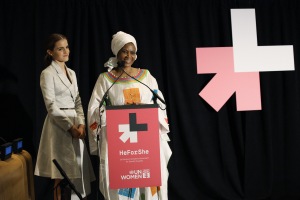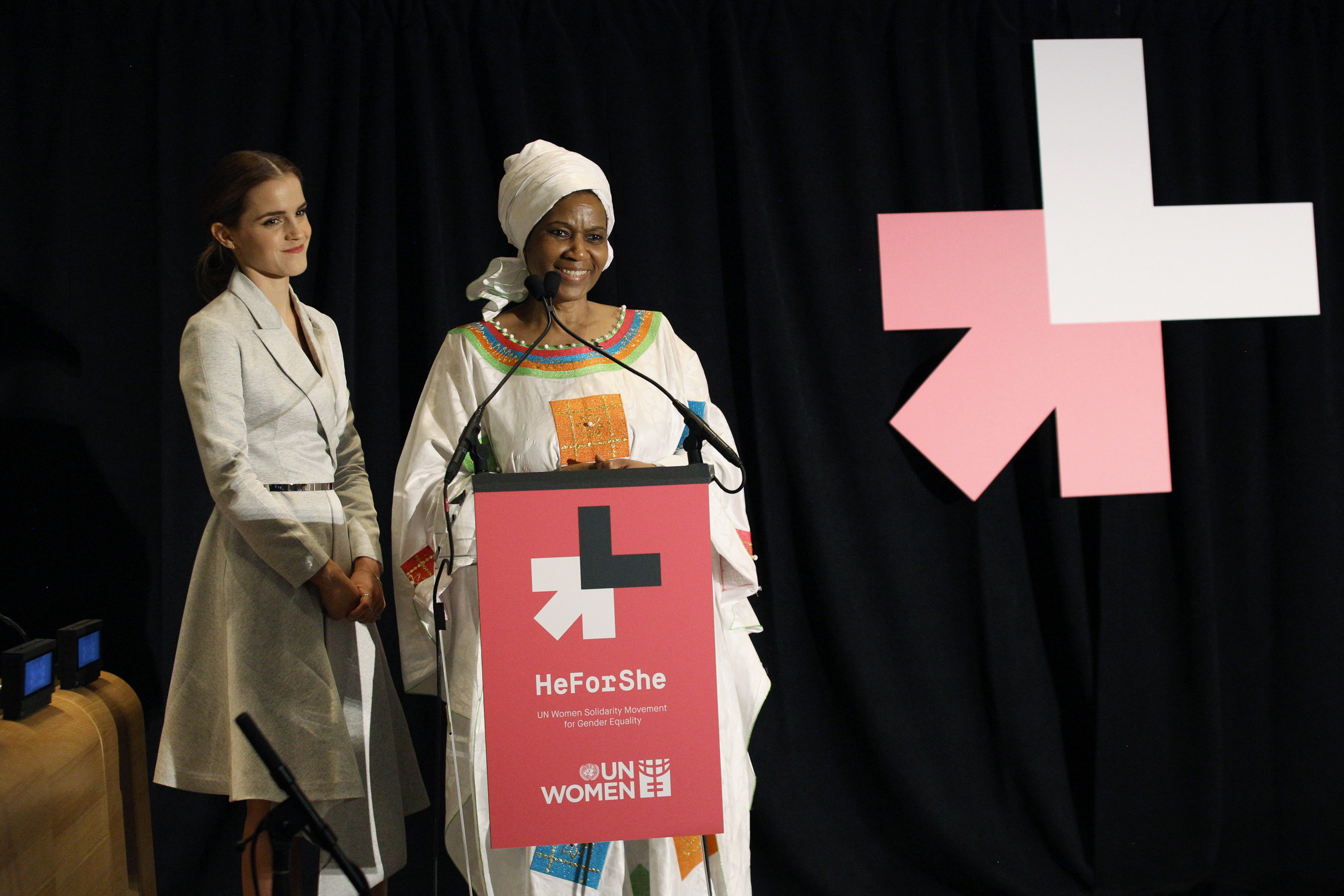
Sept. 22, the world’s most beloved British actress and UN Goodwill Ambassador, Emma Watson, gave an emotionally stirring speech regarding the feminist HeForShe campaign in front of the United Nations. The HeForShe campaign is advocating for male allies to step up to the plate and speak up about the inequalities women and girls face everyday. Since its debut in late September, social media users and Watson’s fans have been expressing their sincerest gratitude towards the actress for her groundbreaking speech left and right, praising her as our generation’s youngest and brightest advocate for feminism. Watson has even been called a “game changer” by Vanity Fair magazine.
Not everyone responded quite so affectionately towards Watson’s campaign speech, however, and the actress has even received some backlash for issues within her speech that she addressed. Critics of the campaign argue that while the campaign has good intentions, it fails to address what boys and men who sign the pledge online can actually do to improve the problem. Others also argue that the campaign does not take into account the fact that many women who label themselves “feminists” often times tend to use this as a means for calling men misogynists. They argue that women are not always the victims in conflicts between the genders, and conversations surrounding the issue turns into women pointing fingers at men for everything they have ever done wrong towards women and girls. This becomes an issue for men, then, the critics claim, as they may fear any words spoken on the issue may be disregarded or criticized by their female counterparts, disallowing them to feel “welcome to participate” in the conversation, as was urged by Watson. Some even say that this speech has taken us “two steps back” with feminism.
As a life-long devoted fan of the Harry Potter series-turned-global-franchise, I will admit it was hard to put away the near-instantaneous bias towards the actress’s HeforShe campaign speech. However, even after reading arguments against the campaign that did state some good points in voicing their concerns, I still firmly stand behind the speech delivered by Watson, along with the campaign for several reasons.
Right off the bat, Watson addressed the issue that “feminism has too often become synonymous with man-hating.” Prior to the deliverance of this speech, I did believe that many women take this opportunity of labeling themselves as “feminists” in order to criticize their male counterparts, and instead of focusing on the issue at hand –which Watson later states is the inequality of men and women –uses it to focus on men who have wronged them. In boldly declaring this first statement, Watson is already helping girls and women around the world realize what feminism actually is, and what it should look like.
Many critics also complain that, as a privileged white female, Watson does not take into account Latina women or other non-Caucasian women whom, often times, face an even larger gap in terms of pay in the workplace than white females. In her speech, however, Watson does acknowledge the fact that her perspective is coming from someone with a privileged background who was not limited because she was a girl and was not assumed she would not go as far in society by her mentors. Having acknowledged these privileges in her life, she then used this as a platform to stand up for the women who have not received the same advantages Watson had growing up-ultimately giving a voice to those who cannot speak up themselves.
Other critics have declared that feminist campaigns, much like the HeforShe, only concentrate on cases where females are being victimized by males, and fail to address the issue of boys who are also often victimized by women. In response to these backlash comments, my response is this: The difference between HeForShe and many other feminist campaigns or discussions that surround these gender equality issues is that many of these campaigns actually fail to invite men to speak up, to share their thoughts, to voice their concerns, and to ultimately be part of the conversation. This is exactly what Watson addresses her in speech and this is the reason why she explicitly addresses her speech towards men, men too can help generate awareness for the issues that they too have faced where they have been victimized by other men or women. Watson is creating this platform as a safe space for not just women, but for men as well.
Still not convinced? At 8:35 in her speech, Watson says to her audience members, “Men don’t have the benefits of equality either. We do not often talk about men being imprisoned by gender stereotypes, but I can see that they are. And when they are free, things will change for women as a natural consequence.” If that is not addressing the inequalities that men face, I do not know how else one could possibly make it clearer. What Watson is advocating for here is especially important and is the key part of her speech – because she is asking for men to not be confined by these stereotypes, to allow themselves to be sensitive if they should so please instead of being controlling or aggressive in the way that they think society wants them to be. This is not to point fingers, but rather to say what men can do to help improve the situation for women, so that they no longer need to feel submissive under the control of men, nor feel suppressed instead of being strong.
I cannot say how much HeforShe will help change gender inequality, but I do believe that it is a stepping stone for women and men to start treating each other with the respect that they deserve. The campaign creates awareness, generates conversation and discussion and encourages both genders to come together to voice their concerns. As Watson stated in her speech, both men and women should be given the right by society to feel sensitive or to feel strong without the judgments and connotations of men being perceived as weak, and for women to seem too bossy–whether it be in a workplace setting or in any other situation in life.
